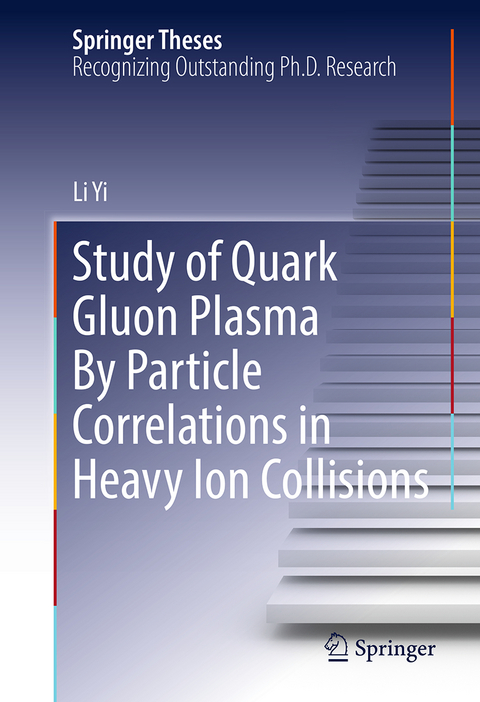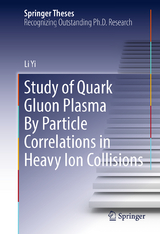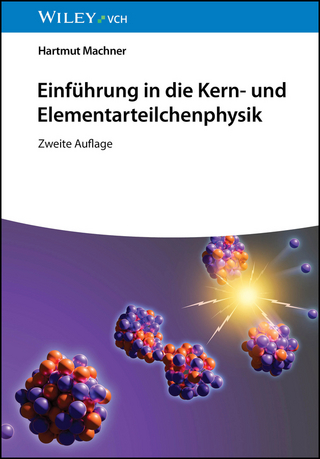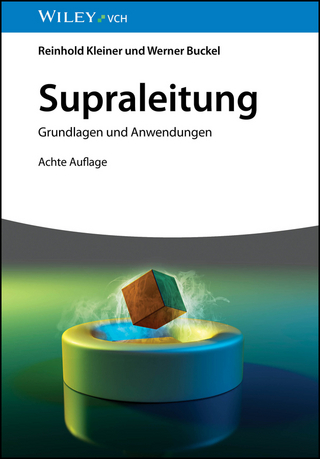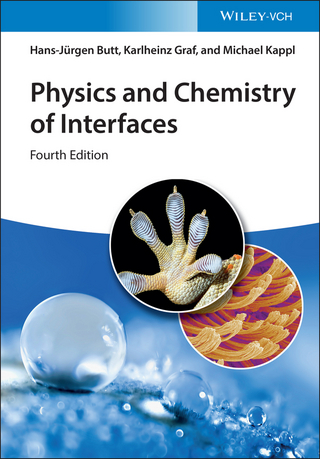Study of Quark Gluon Plasma By Particle Correlations in Heavy Ion Collisions
Springer-Verlag New York Inc.
978-1-4939-6485-7 (ISBN)
The work presented in this thesis was conducted with the STAR experiment at the Relativistic Heavy Ion Collider at Brookhaven National Laboratory, where the center-of-mass energy of both collision systems was a factor of 100 larger than the rest mass of the colliding nuclei. The results contained in this thesis are highly relevant to our quest for deeper understanding of quantum chromodynamics. The results obtained challenge the interpretation of previous works from several other experiments on small systems, and provoke a fresh look at the physics of hydrodynamics and particle correlations pertinent to high energy nuclear collisions.
Dr. Li Yi is currently with the Wright Laboratory at Yale University, having gained a PhD from Purdue University in 2014.
Introduction.- Quark Gluon Plasma - Heavy Ion Collisions.- Collective Flow.- Jet-medium Interactions.- Two-particle Δη-Δφ Correlation and the Ridge.- STAR Experiment.- Relativistic Heavy Ion Collider.- STAR Detector.- Higher Harmonics v3.- Two-Particle Q-Cumulant Method.- Data Sample and Analysis Cuts.- v3 Measurement Result.- Isolation of Flow and Nonflow Correlations.- Analysis Method.- Data Analysis.- Results and Discussion.- Summary.- 'Ridge' in d+Au.- Data Sample and Analysis Cuts.- Centrality Definition in d+Au Collisions.- Correlation Analysis.- Two-Particle Correlation at Mid-Rapidity.- Event-Selection Effect on Jetlike Correlated Yield.- Two Particle Δφ Correlation at Forward Rapidities.- Near-Side Long-Range Ridge Δη Dependence.- Fourier Coefficients.- Summary.- Conclusion.
| Erscheinungsdatum | 08.10.2016 |
|---|---|
| Reihe/Serie | Springer Theses |
| Zusatzinfo | 42 Illustrations, color; 12 Illustrations, black and white; XVI, 83 p. 54 illus., 42 illus. in color. |
| Verlagsort | New York |
| Sprache | englisch |
| Maße | 155 x 235 mm |
| Themenwelt | Naturwissenschaften ► Physik / Astronomie ► Atom- / Kern- / Molekularphysik |
| Naturwissenschaften ► Physik / Astronomie ► Hochenergiephysik / Teilchenphysik | |
| Naturwissenschaften ► Physik / Astronomie ► Mechanik | |
| Naturwissenschaften ► Physik / Astronomie ► Plasmaphysik | |
| Naturwissenschaften ► Physik / Astronomie ► Strömungsmechanik | |
| Naturwissenschaften ► Physik / Astronomie ► Thermodynamik | |
| Schlagworte | Collective flow • Deuteron-gold collisions • Gold-gold collisions • heavy ion collisions • Hydrodynamics of quark-gluon plasma • Jet-medium interactions • quark-gluon plasma • Relativistic Heavy Ion Collider • STAR experiment Brookhaven |
| ISBN-10 | 1-4939-6485-2 / 1493964852 |
| ISBN-13 | 978-1-4939-6485-7 / 9781493964857 |
| Zustand | Neuware |
| Haben Sie eine Frage zum Produkt? |
aus dem Bereich
